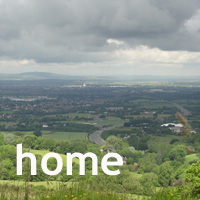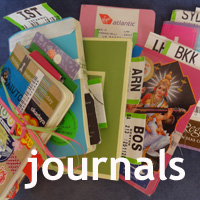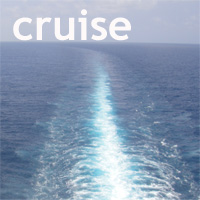Ten years ago
 Thursday, July 20, 2017 at 5:46PM
Thursday, July 20, 2017 at 5:46PM
In a throwaway line at the end of my blog post about rubber stamps, I gaily mentioned in passing that I was off to join a focus group to discuss food packaging with Marks and Spencer in Gloucester that Friday morning.
What happened later that day became the stuff of history, recorded by the women of Gloucestershire in a best-selling book with my name on the cover. I didn’t want it to be so, but we were advised that Amazon needed an author’s name and “The Women of Gloucestershire” wouldn’t do. I was uncomfortable to be seen taking the credit for anything more than the original idea but at least got to share it with my colleague Sue, who did the editing.
So what happened?
Well, it had been raining as we’d arrived that morning and we’d had to run into M&S to pick up our sandwich lunch platters on the way into the office. We sat and noticed the rain falling, but thought no more of it until the time came to leave, when the puddles in the car park had joined together to form more of a pond than a puddle. It was still raining hard. Very hard indeed.
The M&S staff who’d led the discussion had come from London, so they hopped in my car and I took them to the station to catch their train home. Dressed in heeled sandals and totally unprepared for the weather, they were last seen disappearing into the station buildings where we had the first inkling that all was not well. Delayed trains meant they might have more of a wait than they thought.
We were all blissfully unaware of what was going on beyond the city. But having cleared up and gathered our things together, we all agreed, we needed to set off home as soon as we could. The weather was not improving and from what we could tell, there might be tricky driving conditions to challenge us.
The focus group had been organised by NFWI in London, and their young Public Affairs Officer Noelle had come to Gloucester for the day to participate. Rather than take her to Gloucester station, where as we already knew, there were delays and disruption, I offered to take her to Stroud instead.
It certainly wasn’t an easy journey and as we drove, it was becoming clear from radio reports that she was unlikely to find a train at Stroud either. We made several last minute route changes, finding flooded roads in the most unexpected places and manhole covers moved by water spouts.
It was still raining, too.
So we carried on home. We were having work done on our bathroom and I knew there were tilers from a company in Reading working there today. Maybe they would take Noelle to the station along the way? The last I saw of her was sitting in the middle of the front seats of a white transit van, entrusted to the care of two young men who had no idea of the scale of the problem but who didn’t mind being advised to go home early. Noelle told the story of the rest of her difficult journey home in our book. Suffice to say it was nearly midnight when she arrived home, having thought at one point that she’d be sleeping on Swindon station!
For those of us safely at home, we counted our blessings and thanked goodness we live on a hill. Having said that, stories of those who had water running through their homes made us realise that even being on a hillside is no guarantee against rushing water.
It was actually Tuesday before the next challenge came, documented in my blog post here.
Later we were to learn how close we’d come to disaster management. That rising water levels had become so critically close to the major electricity station for the county that plans were afoot to evacuate everyone. That water supplies were running dangerously low, giving further cause for concern and I understand that we were within 30 minutes of an emergency situation being declared.
Thankfully, we were blissfully unaware of all of that and simply did what we could to manage our own situation and help those around us who were not as fit/able as we were.
Our kitchen became the water bank. We collected drinking water from the sports club in the village and filled as many containers as we had with water from wherever we could for washing up, to be used later for flushing the loo.
And I joined my WI friends and colleagues at the local supermarket, distributing water as fast as it arrived.
I see from my blog that it was August 8th before our water supply returned to normal!
Since there was only one topic of conversation for quite some time in this part of the world, I thought it would be a good idea to capture the stories and contacted a local publisher who agreed. We set to immediately and later that year, our book was published. As we worked on the details, word came through from one of our members. Her son worked for Google in the USA, in the books division and he sought our permission to make our stories amongst the first titles to be digitised. Since the principal aim was to record history (all profits went to the flood relief fund), we were happy to grant that permission.
You can read parts of it here.
 Gill Thomas |
Gill Thomas |  1 Comment |
1 Comment |  Gloucestershire,
Gloucestershire,  life
life 







Reader Comments (1)
It's hard to believe it was ten years ago.